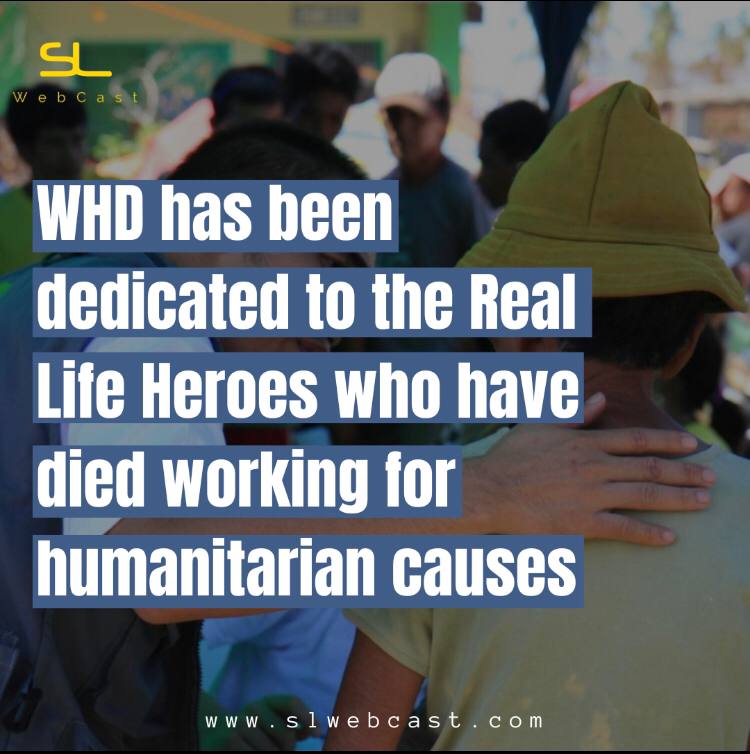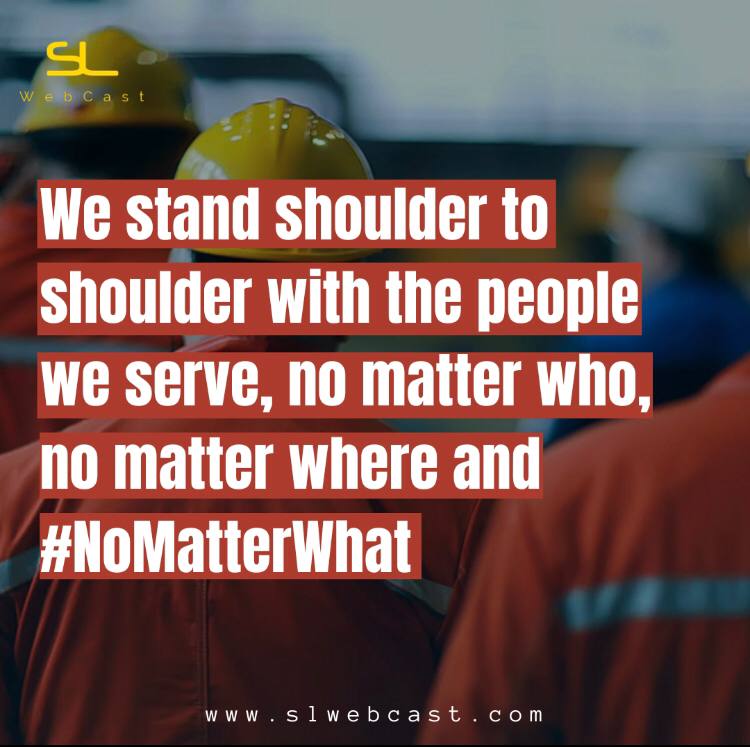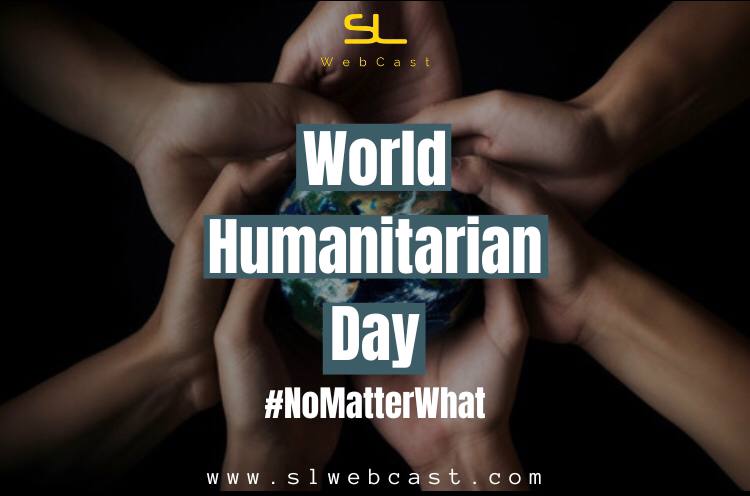WHD 2023
According to the United Nations, the theme for World Humanitarian Day 2023 is “No Matter What.” This highlights the ability of humanitarians to prioritize the needs of the people they are helping — regardless of any other factors.For this year’s WHD, we show that we stand shoulder to shoulder with the people we serve, no matter who, no matter where and #NoMatterWhat.
What is World Humanitarian Day about?
Humanitarian workers play a crucial role in providing assistance, protection, and support to communities affected by disasters, conflicts, and other emergencies. They often work in dangerous and challenging environments, risking their own safety to save lives and alleviate suffering. Their dedication and courage should be recognized and celebrated on World Humanitarian Day.
On August 19th, World Humanitarian Day is observed to pay tribute to the commitment and sacrifices made by humanitarian aid workers who risk their lives to help people affected by crises worldwide. This day was established by the United Nations General Assembly to raise awareness about humanitarian assistance and the importance of supporting those who provide it.
Humanitarian aid workers, also known as humanitarians, work tirelessly in challenging and dangerous environments to address the needs of vulnerable populations. They respond to natural disasters, conflicts, and other emergencies, providing assistance and protection to those affected.
These dedicated individuals come from diverse backgrounds, including doctors, nurses, engineers, logisticians, social workers, and volunteers. They may work for international organisations, non-governmental organisations, or local communities. Regardless of their role, aid workers share a common goal to alleviate suffering and save lives.
Humanitarian aid workers face many risks and challenges in their work. They often work in insecure areas where their safety and security are at risk. They may be exposed to violence, hostility, and precarious living conditions. They may have limited access to basic resources and infrastructure, making their work even more challenging.
Despite these risks, humanitarians continue to provide life-saving services, such as medical care, food aid and cleanliness.

What kind of risks do humanitarian workers face?
In recent years, the number of attacks on humanitarian workers has been escalating, posing a significant challenge to providing assistance in conflict zones. These attacks not only endanger the lives and well-being of aid workers but also hinder the delivery of essential services to vulnerable populations.
There are several reasons why humanitarian workers are aimed in conflict zones:
- Control over resources: Conflict zones often have limited access to basic necessities such as food, water, and medicine. Humanitarian workers bring these essential resources, making them attractive targets for groups that want to control or profit from them.
- Political motivations: Conflict zones are often characterised by multiple fractions with different political goals. These groups may see humanitarian workers as symbols of the international community and may attack them to gain attention for their cause or to undermine the legitimacy of the intervention.
- Ideological differences: Some extremist groups may view humanitarian aid as contrary to their ideology or Publicity. They may see aid workers as agents of “the enemy” and attack them as a way to display their opposition.
- Disrupting assistance: Attacking aid workers can disrupt and delay humanitarian efforts, leaving vulnerable populations without essential services. This can create further instability or force the affected population to rely on armed groups for survival.
Why do we celebrate World Humanitarian day?
This day has been dedicated to the Real Life Heroes who have died working for humanitarian causes. The day aims to pay tribute to those who have lost their lives and acknowledge the contributions of humanitarian workers in alleviating the suffering of others.
World Humanitarian Day was established by the United Nations General Assembly in 2008 to honour the 22 staff members who were killed during a bombing at the UN headquarters in Baghdad, Iraq in 2003. Since then, it has expanded to recognize all humanitarian workers who risk their lives to provide aid and support to people affected by conflicts, natural disasters, and other emergencies worldwide.
On this day, various events and activities are organised globally to raise awareness about the challenges faced by humanitarian workers and advocate for their safety and security. These initiatives include panel discussions, exhibitions, film screenings, and other public events that aim to engage and educate the public about the importance of humanitarian work.
World Humanitarian Day also serves as an opportunity to recognize the vital role that local communities play in humanitarian response. It emphasises the need for collaboration between humanitarian workers and the affected communities to ensure a more effective and sustainable environment.

What was the 1st theme of the humanitarian day celebration?
This theme aimed to recognize and honour the efforts and sacrifices of humanitarian workers around the world. The theme ‘We Are Humanitarian Workers’ emphasised that humanitarian work is not limited to a specific group of people or organisations. It emphasised that anyone, regardless of their background or profession, can contribute to humanitarian efforts. It aimed to inspire individuals and communities to step up and take action in their own capacities to support those in need.
The theme also aimed to raise awareness about the risks and challenges faced by humanitarian workers. It highlighted the need for their protection and safety and the importance of upholding the principles of neutrality, impartiality, and human dignity in humanitarian operations.
World Humanitarian Day 2010 provided an opportunity to express gratitude and solidarity with humanitarian workers, celebrating their commitment and perseverance in providing assistance to those affected by crises worldwide. By recognizing their work and sacrifices.
Is World Humanitarian Day more about the humanitarian purpose than the actual humanitarian relief workers?
Actually, it’s both because the committee announced that they can have main areas to be focused on for this year’s commemoration day, However, it is also aimed at decision-makers, governments, humanitarian organisations, and individuals who have the potential to support or contribute to humanitarian efforts.
The campaign also aims to engage and raise awareness among young people, the media, and the private sector to encourage them to become more involved in humanitarian work and support.
The campaign will utilise various communication channels, including social media, online platforms, and traditional media outlets, to reach its target audience. It will feature stories of individuals and communities who have benefited from humanitarian assistance, as well as profiles of aid workers and volunteers. The campaign will also provide information on how individuals can get involved, donate, or support humanitarian organisations.
In addition, the campaign will organise events, workshops, and training sessions to educate young people on humanitarian issues and equip them with the skills and knowledge needed to contribute effectively. It will collaborate with educational institutions, youth organisations, and private sector companies to facilitate internships, mentorship programs, and other opportunities for young people to gain practical experience in the humanitarian field.


